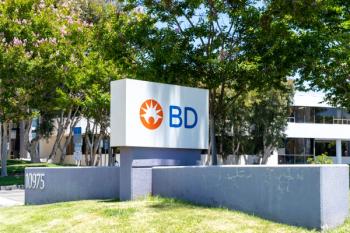
- LCGC Europe-01-01-2020
- Volume 33
- Issue 1
The 36th International Symposium on Microscale Separations and Bioanalysis (MSB2020)
The 36th International Symposium on Microscale Separations and Bioanalysis (MSB2020) will take place at the Conference Center Le Grand Large in the city of Saint‑Malo, France, from 5–8 April 2020.
The 36th International Symposium on Microscale Separations and Bioanalysis (MSB2020) will take place at the Conference Center Le Grand Large in the city of SaintâMalo, France, from 5–8 April 2020.
The four-day symposium will be organized by two European co-chairs: Myriam Taverna, Paris-Sud University, France, and Serge Rudaz, University of Geneva, Switzerland. More than 250 international scientists, researchers, other academics, and industrial members will gather together to discuss the latest trends in all major microscale separation techniques, including capillary electrophoresis (CE), nano-liquid chromatography (LC), microfluidics, mass spectrometry (MS), CE-MS, and lab-on-chip devices, independent of whether they are pressure- or electrically-driven.
Building on the rich history of separation science, MSB 2020 aims to create an ambience that ensures a stimulating and dynamic exchange of high-quality research between participants. With that in mind, the symposium format encompasses several unique features. Over 70% of the programme is based on submitted abstracts, evaluated and selected by a double-blind peer-review process, ensuring top science regardless of reputation or seniority. Topic sessions will be introduced and chaired by leading researchers, also acting as the Scientific Committee. One third of the time will be allocated to active discussions after each oral presentation. Poster sessions will include a three-minute pitch contest and a poster award. Furthermore, a scientist award will be attributed to the best scientific contribution by a young researcher.
The programme comprises 13 topic sessions, 3 plenary lectures, 18 keynotes, and numerous oral presentations in two parallel tracks, thus giving the participants the opportunity to attend most of the talks. The programme covers all aspects of microscale separations and applications related to systems biology, pharmaceutical sciences, biotechnology, clinical diagnostics, food and health, nanoparticles, industrial chemicals, and advanced detection and instrumentation (to see all the topics of MSB2020, please visit the conference website: www.msb2020.com).
Up to three pre-congress courses are offered, as well as one workshop on the construction of an open-source CE system. This workshop will continue throughout the duration of MSB and will be a common thread during the congress. It will be possible to follow the progress of the prototype construction from scratch as it will be finalized for the closing ceremony.
Registration includes access to the conference, welcome reception, coffee breaks, gala dinner, congress materials, and a social programme. A number of travel grants and a PhD-Plus Package are available to young researchers (students and post-docs) who are willing to join scientific and social activities at MSB2020.
The conference venue is located in the heart of the small, beautiful city of Saint-Malo on the Channel coast. Saint-Malo and its region is full of attractions for visitors of all ages.
Key dates include:
29 February 2020: Deadline for last-minute abstract submission for posters
8 February 2020: Deadline for early bird registration
5 April 2020: Symposium opening and short courses
For more information visit:
Articles in this issue
about 6 years ago
Vol 33 No 1 LCGC Europe January 2020 Regular Issue PDFabout 6 years ago
Thirty-Two Years Connecting with Gas Chromatographyabout 6 years ago
Chicago BoundNewsletter
Join the global community of analytical scientists who trust LCGC for insights on the latest techniques, trends, and expert solutions in chromatography.




